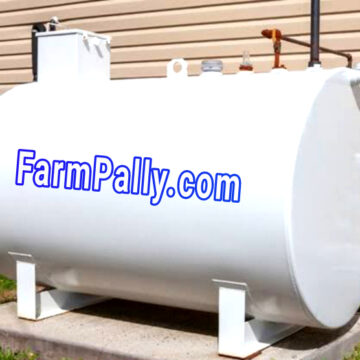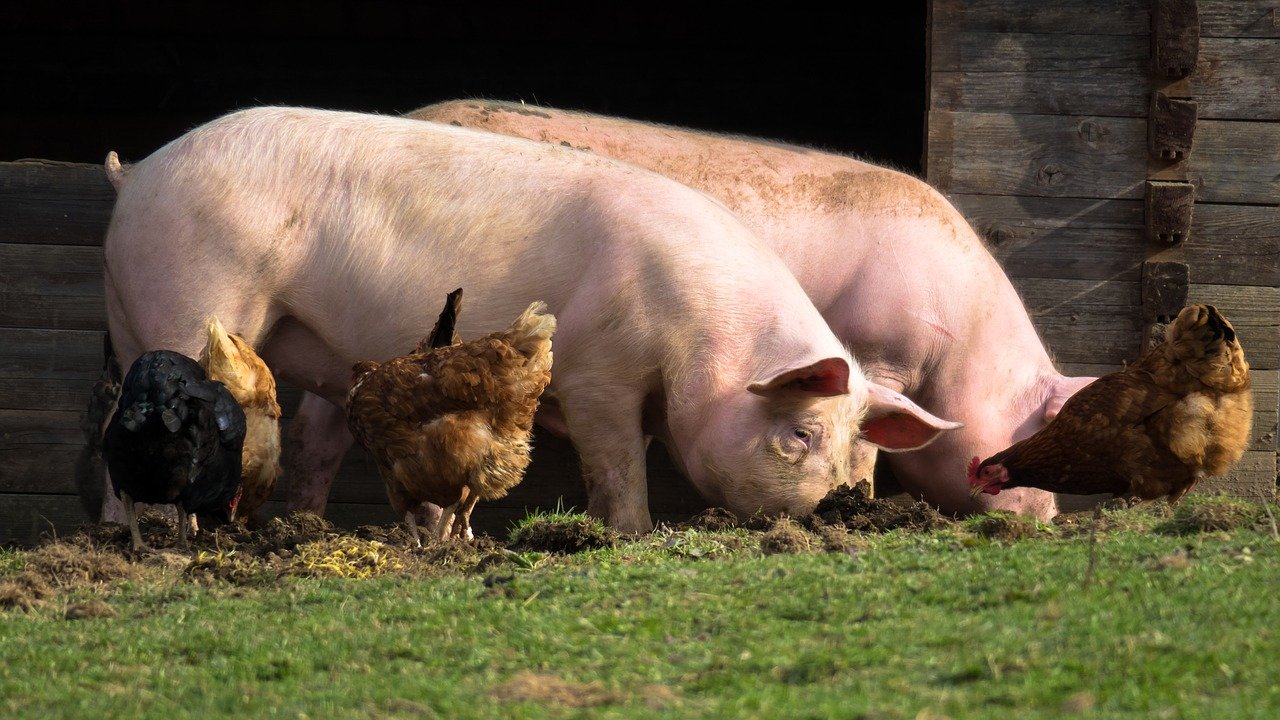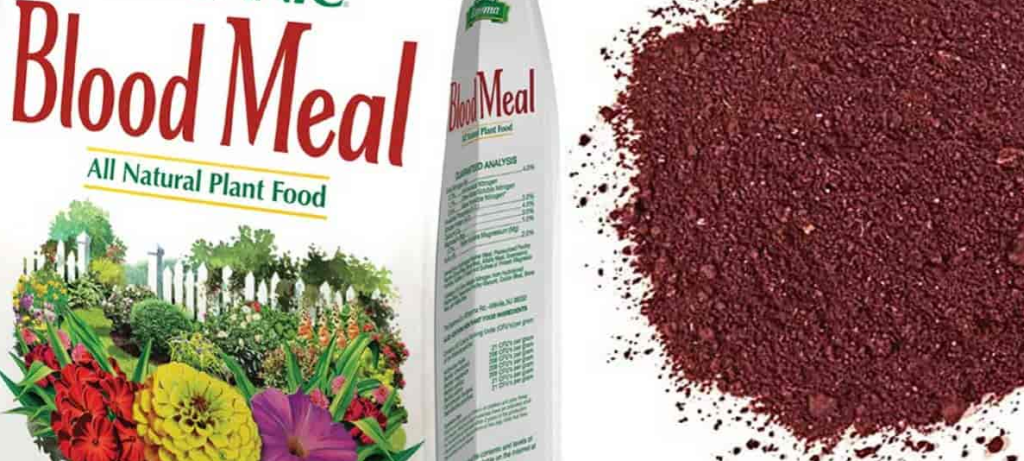What is Blood Meal?
Blood meal is a dried animal blood scraped from slaughterhouse, and processed as a constituent and a source of protein in animal feeds and as a nitrogenous fertilizer.
Blood meal is commonly used in poultry feeds as a high protein source, feeding sheep, pigs, cattle and fish. It has other nutrients like iron, potassium and nitrogen.
Blood meal is also popularly used as an organic fertilizer to supply nitrogen back to the soil, and the NPK of blood meal is 13:1:0.6.
Disadvantages of Blood Meal in Livestock Feeds and Fertilizer
Demerits of Blood Meal in Animal Feed
Bloodmeal is a byproduct of a meat processing house, usually from cow, dried, and powdered to preserve the nutrients (Protein and minerals).
While the blood meal is 60% protein, and has other minerals, including iron and zinc, this natural product has some drawbacks as a supplement of animal feeds.
Blood meal is Expensive
The cost of 10kg bag of blood meal is $50 or more, hence, it’s far more expensive than other sources of protein, lysine, methionine for poultry birds and livestock.
High cost is one of the main disadvantages of using blood mealin livestock feed, while farmers go for soybeans and corn gluten meal, palm kernel cake (PKC), or groundnut cake (GNC).
Blood meal is not palatable for animals
Blood meal does not taste good and have bad smell especially if overcooked during processing, therefore, it can not be added in large quantity despite being processed in a powered form.
Blood meal can only make up 6% or thereabout of your animal feed. You’d still have to add another protein constituent if you need to raise protein level of your livestock feeds.
Also, your livestock may not want to take the feed that contains a blood meal.
Since it can reduce their feed intake, you’d have to add it to introduce it to them slowly and in lower amount in their rations like 2% at start till they get used to the taste and odor.
Blood meal takes a great care to process
Blood gotten from cow, pig can be processed a little differently, plasma needs to be removed from the red blood cells, and the blood proteins need to be extracted for use a blood meal.
There are different methods that can be use to process blood meal, from heating to drying the blood based on the nutrients.
If the blood is overcooked, some vital nutrients in it like lysine can be lost.
Blood meal can trigger diseases in livestock
Molds can grow on the blood meal in the slaughterhouse, and if it’s not processed properly, moldy by-products can trigger respiratory problems and mycotic abortion in farm animals.
It can also cause poor feed intake, growth, blood poisoning, inflammation of the pancreas, allergies, low fertility, vomiting and diarrhea, low milk production, and low productivity in livestock.
Disadvantages of Blood Meal as Organic Fertilizer
Blood meal is a natural nitrogen fertilizer that works to decompose plant residues an convert them to organic matter which also helps plant growth.
However, blood meal can have negative effects on the soil, animals, and also harmful to humans when used frequently on garden.
Blood meal fertilizer can burn your crops
Blood meal can only be used on soil that’s overly depleted in nitrogen, otherwise, it can raise the nitrogen level of the soil so much that it burns the plants’ roots.
While the nitrogen in blood meal is released slowly into the soil, it can also last for up to 2 months in the soil, hence, prolong the root burn when overly applied.
It can Delay Flower Blooming
Nitrogen is essential in food production in plants, cellular development, and in using energy to grow.
if your plants have much nitrogen at disposal, it can produce more green leaves and have less energy for flower production.
Deficiency in nitrogen can also cause delay in flower production.
Blood meal can lower diversity of plants
Plants that need a low amount of nitrogen can be easily outgrown by plants that need high level of nitrogen with the regular use of blood meal fertilizer.
Crops that can not survive on acidic soil can easily die off with the regular application of blood meal.
Blood meal fertilizer can make your soil Acidic
Blood meal organic fertilizer can change your soil pH value. If you grow alkaline-loving crops, applying blood meal can be devastating for the plants.
Using blood meal as a fertilizer over a long period can make your soil more acidic, however, it can neutralize alkaline soil.
It leads to water pollution
Too much of nitrogen in the soil makes soil bacteria to convert it to nitrates, and water-soluble nitrates can be easily washed into water bodies, and cause pollution to man and aquatic animals.
Carnivores and house pets are easily attracted to your garden
House pets like cats and dogs can start digging you garden, and damage your crops because of the smell of the blood meal.
The smell of the blood can also invite other pests and animals like fox and coyotes, but repel foragers like rabbits, deer and squirrel from your garden.
Blood meal fertilizer can harm house pets
Since pets are attracted to your garden with blood meal, eating this natural fertilizer can be harmful to their health.
Harmful pathogen can grow on the soil, and pollutant like ammonia can be released and when ingested, it can lead to difficulty in breathing.
Blood meal is not Vegan friendly
Blood meal isn’t right for everyone. If you practice veganism, then you’d not be able to benefit from this natural nitrigenous fertilizer or apply on your garden.








